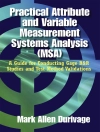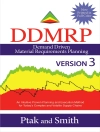Tensors and methods of differential geometry are very useful mathematical tools in many fields of modern physics and computational engineering including relativity physics, electrodynamics, computational fluid dynamics (CFD), continuum mechanics, aero and vibroacoustics and cybernetics.
This book comprehensively presents topics, such as bra-ket notation, tensor analysis and elementary differential geometry of a moving surface. Moreover, authors intentionally abstain from giving mathematically rigorous definitions and derivations that are however dealt with as precisely as possible. The reader is provided with hands-on calculations and worked-out examples at which he will learn how to handle the bra-ket notation, tensors and differential geometry and to use them in the physical and engineering world. The target audience primarily comprises graduate students in physics and engineering, research scientists and practicing engineers.
Table of Content
General Basis and Bra-Ket Notation.- Tensor Analysis.- Elementary Differential Geometry.- Applications of Tensors and Differential Geometry.- Further Reading.- Appendices.
About the author
Dr. Hung Nguyen-Schäfer is a senior technical manager in development of electric machines for hybrid and electric vehicles at EM-motive Gmb H, a joint company of Daimler and Bosch in Germany. He received B.Sc. and M.Sc. in mechanical engineering with nonlinear vibrations in fluid mechanics from the University of Karlsruhe (KIT), Germany in 1985; and a Ph.D. degree in nonlinear thermo- and fluid dynamics from the same university in 1989. He joined Bosch Company and worked as a technical manager on many development projects. Between 2007 and 2013, he was in charge of rotordynamics, bearings and design platforms of automotive turbochargers at Bosch Mahle Turbo Systems in Stuttgart.
He is also the author of two professional engineering books: Rotordynamics of Automotive Turbochargers, Springer (2012) and Aero and Vibroacoustics of Automotive Turbochargers, Springer (2013).
Rotordynamics of Automotive Turbochargers, Springer (2012) and Aero and Vibroacoustics of Automotive Turbochargers, Springer (2013).
Dr. Jan-Philip Schmidt is a mathematician. He studied mathematics, physics, and economics at the University of Heidelberg, Germany. He received a Ph.D. degree in mathematics from the University of Heidelberg in 2012. His doctoral thesis was funded by a research fellowship from the Heidelberg Academy of Sciences, in collaboration with the Interdisciplinary Center for Scientific Computing (IWR) at the University of Heidelberg. His academic working experience comprises several research visits in France and Israel, as well as project works at the Max-Planck-Institute for Mathematics in the Sciences (MPIMIS) in Leipzig, and at the Max-Planck-Institute for Molecular Genetics (MPIMG) in Berlin. He also worked as a research associate in the AVACS program at Saarland University, Cluster of Excellence (MMCI).












